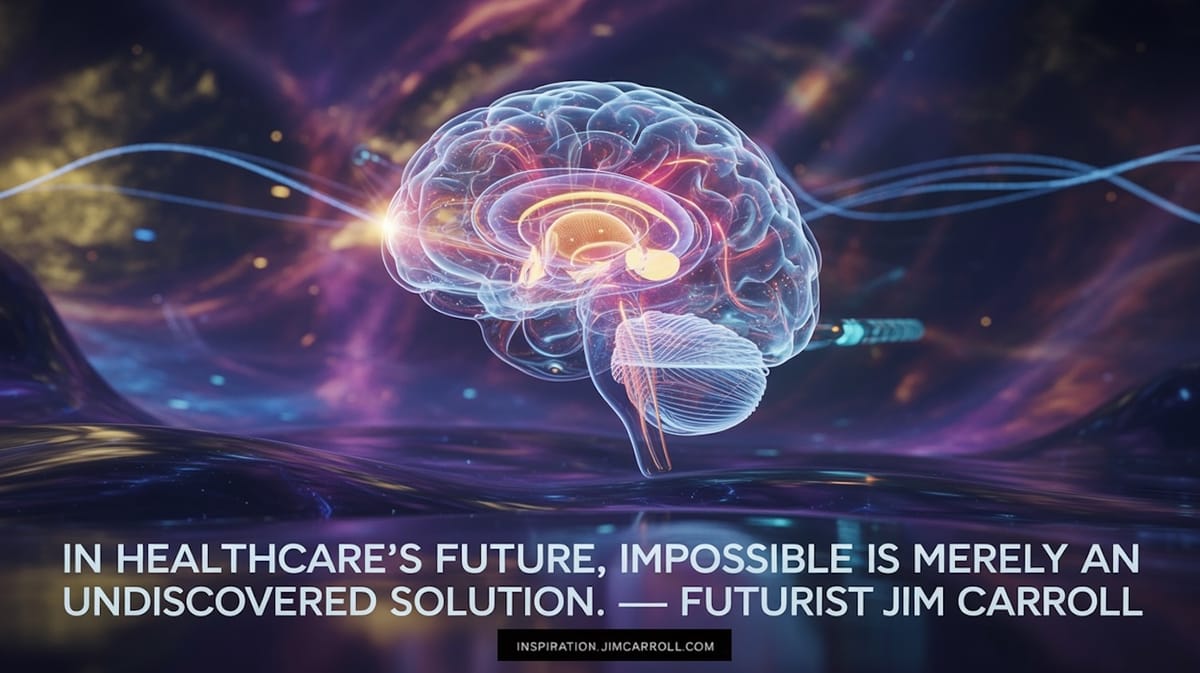"In healthcare's future, impossible is merely an undiscovered solution" - Futurist Jim Carroll
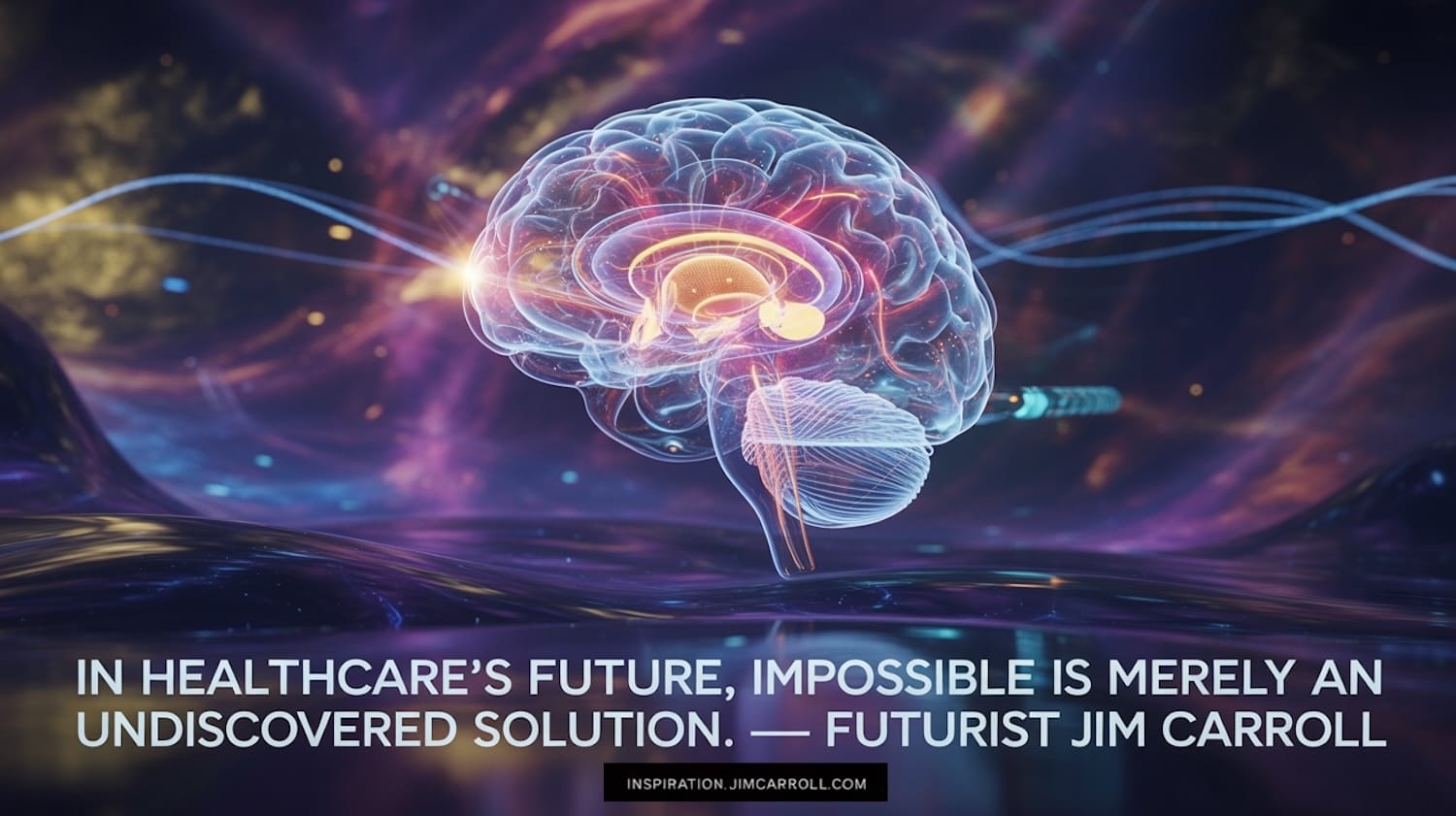
I'm pulling together a slide deck for an upcoming healthcare keynote.
While the sector remains very much under attack in the US, there is no doubt that elsewhere in the world we will see fascinating developments in the next many years. Indeed, we stand at a precipice of transformation so profound that it redefines what's possible for human health and longevity. A lot of this has to do with the accelerating pace of discovery of new healthcare and medical science, the role of technology, and the impact of AI.
One section of my deck takes a look at the big, bold ideas or concepts that are being pursued, shared below. While most of the people mentioned are legitimate experts in their fields, the quotes could be considered to be a bit of a stretch in terms of possibility. Does this make them invalid? Maybe not - I'll note during my talks that sometimes, overly optimistic predictions serve a purpose because they wake us up to the opportunity instead of blinding us with barriers.
So what's in my deck? I share this one from a fellow Futurist Ray Kurzweil: "What we used to think of as fantasy is now simply engineering". This isn't just hyperbole; it's the unfolding reality in labs and research institutions worldwide.
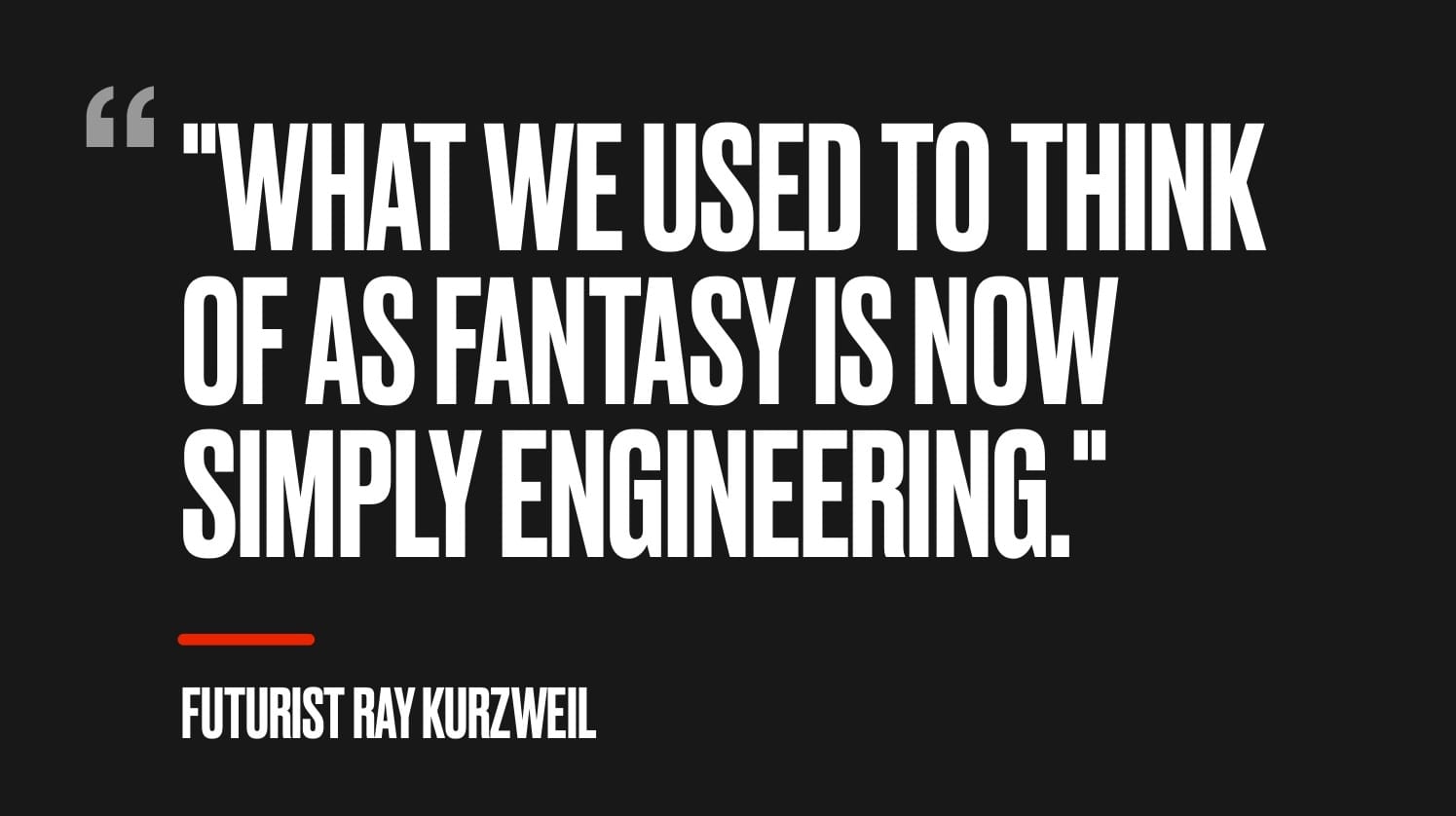
Dr. Eric Topol heralds that "we are at the beginning of a golden age of medicine, where what was once purely in the realm of science fiction is becoming science fact". Indeed, the advancements barreling down the pike are set to revolutionize not just how we treat illness, but how we conceive of health itself.
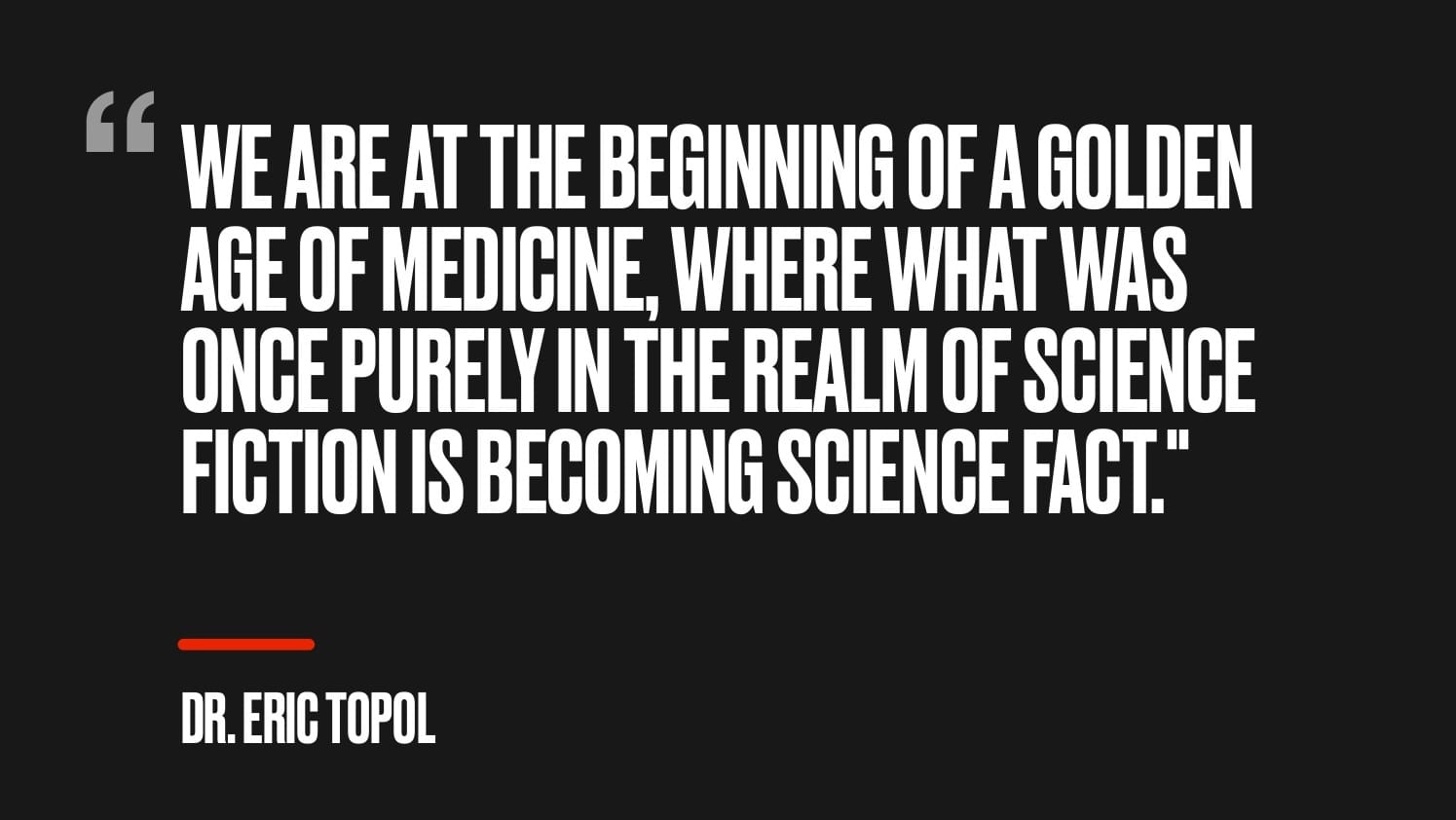
One of my favorite and most often shared quotes is this one. For centuries, the complexities of the human brain and the finality of organ failure have been daunting challenges, but that is now a big stretch goal. We're now looking at a future where brain health receives the same concerted attention and breakthroughs that cardiovascular health saw in the last century. Dr. Deepak Chopra, a noted integrative medicine advocate, confidently states, “What we did for heart health in the 20th century, we can do for brain health in the 21st century”. Is he wrong? Maybe not.
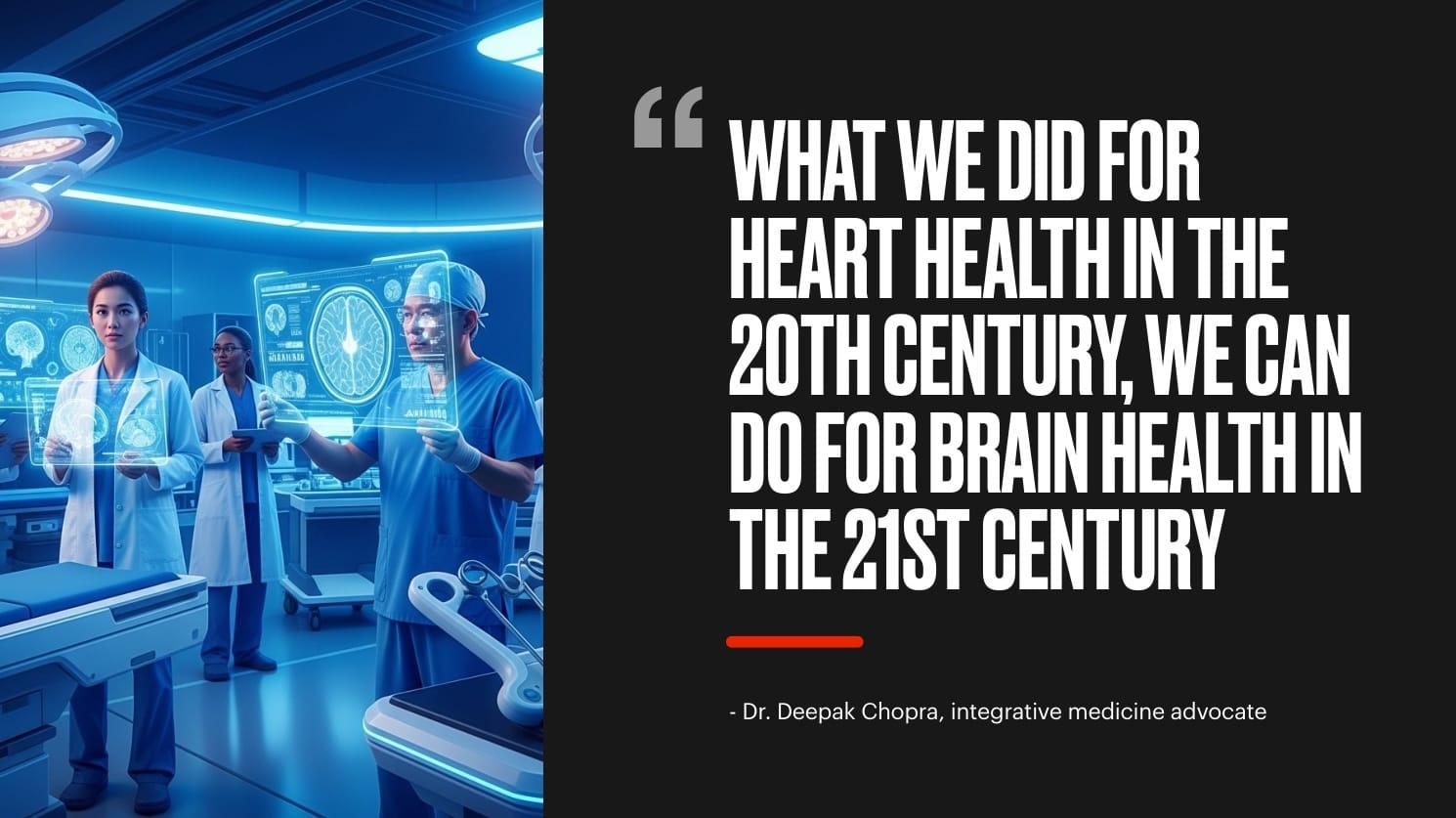
This optimism extends to the very building blocks of our bodies. The pioneering work in regenerative medicine, such as that from Atala's group, is accelerating at such a pace that, according to the Wake Forest Institute for Regenerative Medicine, "replacement organs will be a reality within years, not decades". Imagine a world where waiting lists for organs are a relic of the past!
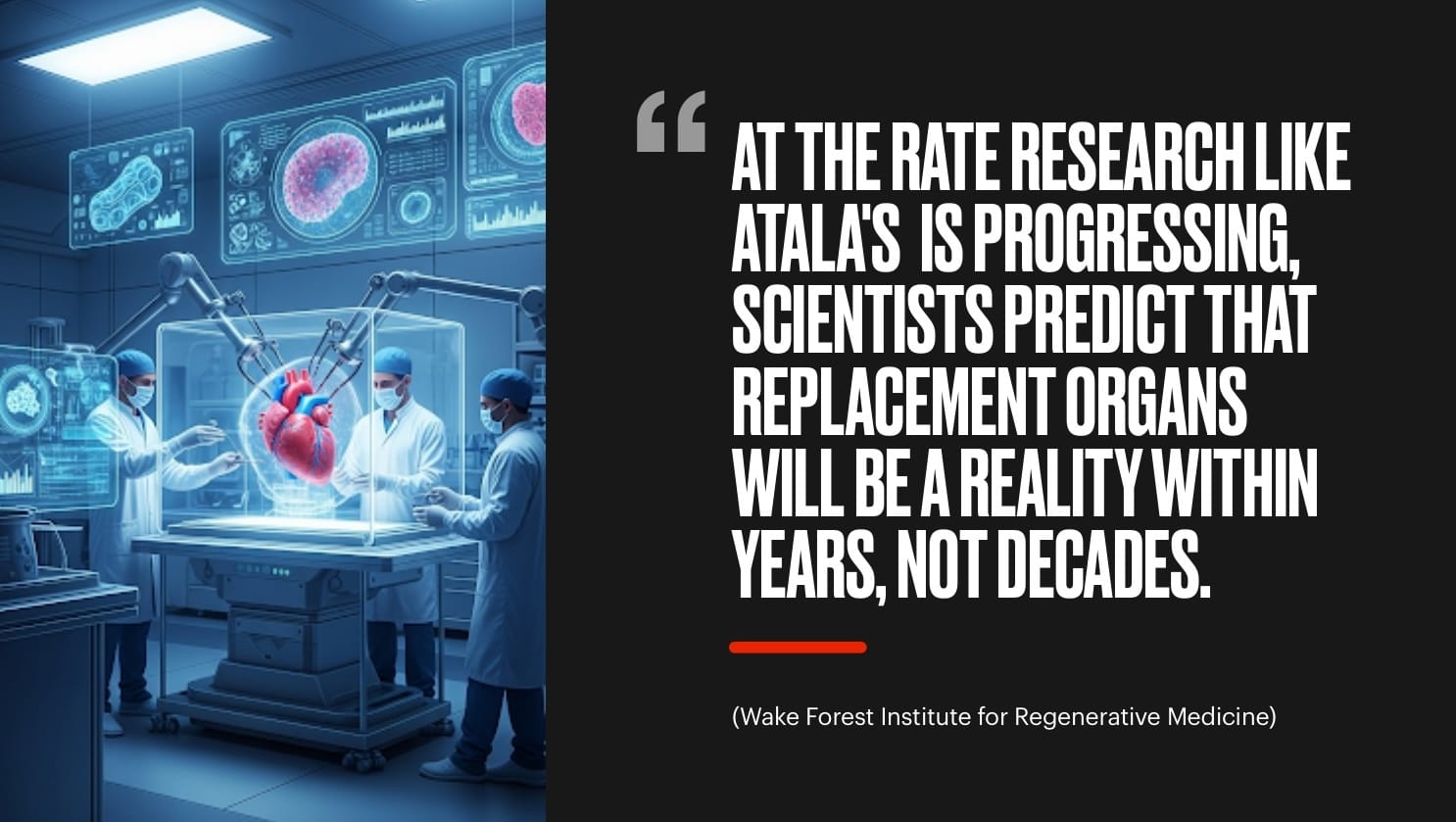
One of the key trends is that the digital technology revolution is also storming the gates of medicine. Dr. Adam Gazzaley, a UCSF neuroscientist, envisions a near future where "video games designed as digital medicine will revolutionize how we treat cognitive disorders". He predicts that "in the next decade, we'll prescribe technology alongside—or instead of—drugs for conditions like ADHD and Alzheimer's".
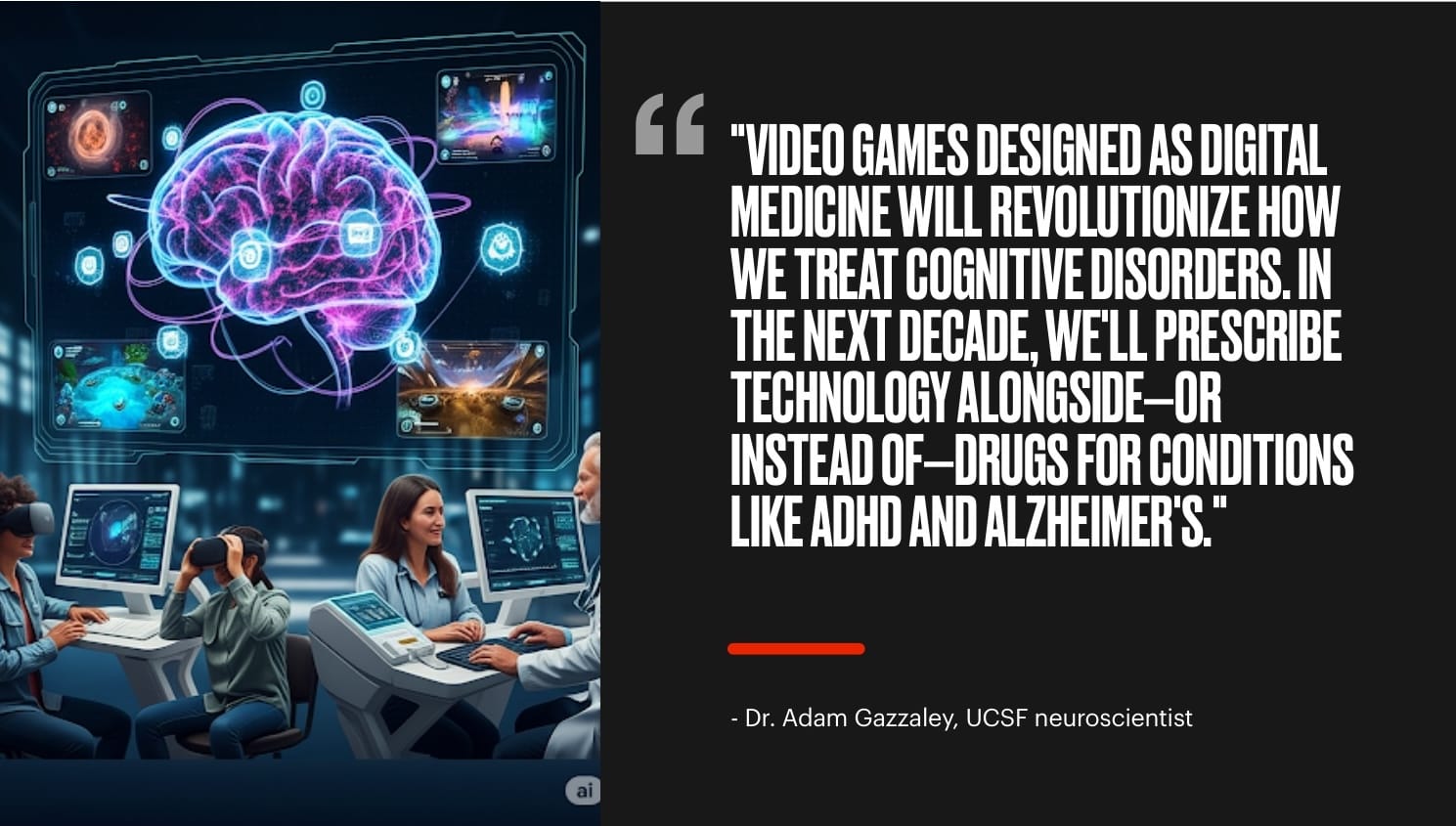
But why stop at treatment when we can aim for prevention and even reversal? Harvard geneticist Dr. George Church believes "it's reasonable to anticipate that in the next few years, we will be able to engineer immunity to most infectious diseases and reverse many aspects of aging". Central to this is the groundbreaking CRISPR genome editing technology. Nobel laureate Dr. Jennifer Doudna foresees that this "will transform medicine in the next decade, allowing us to not just treat but actually cure genetic diseases at their source"
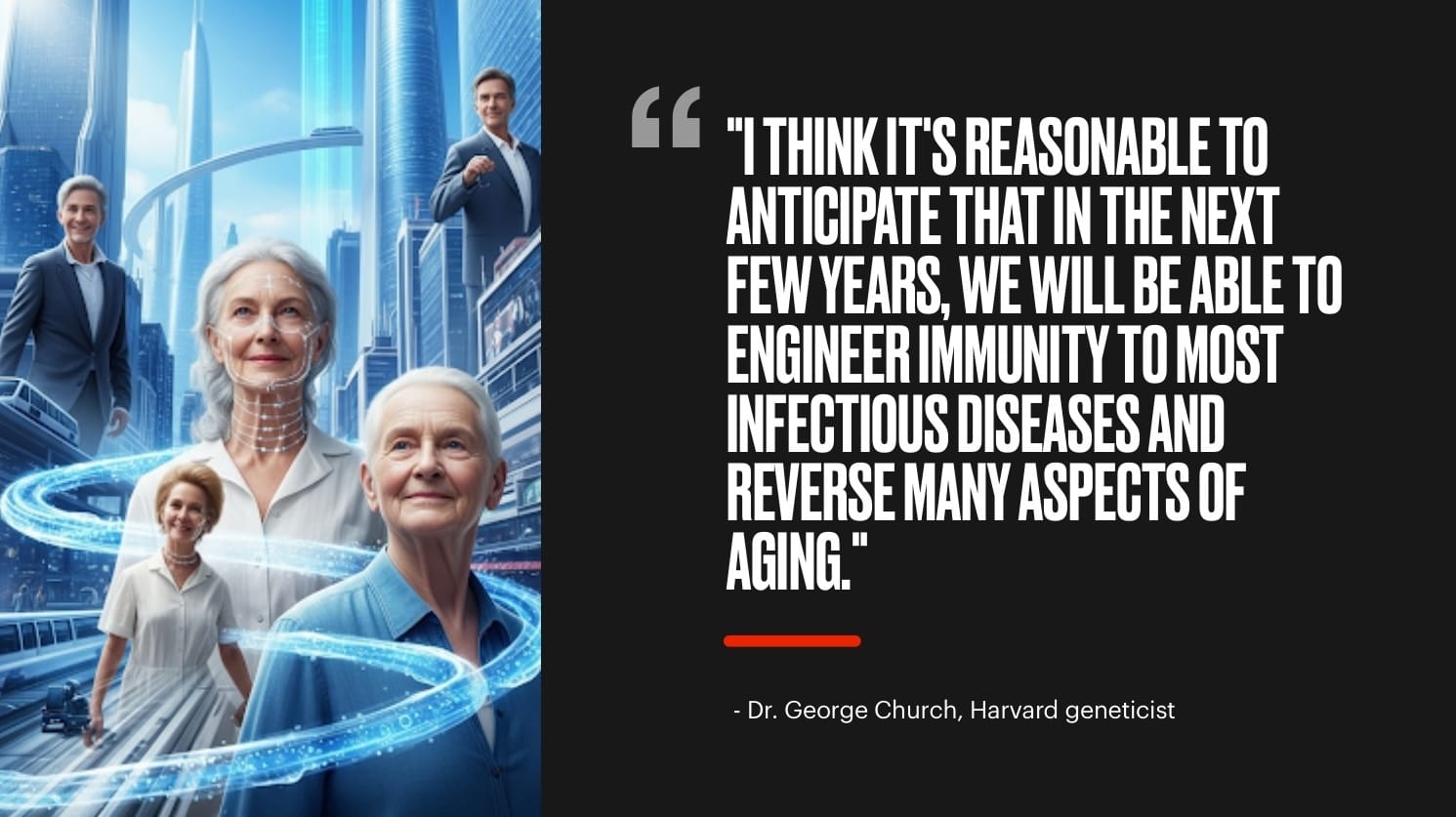
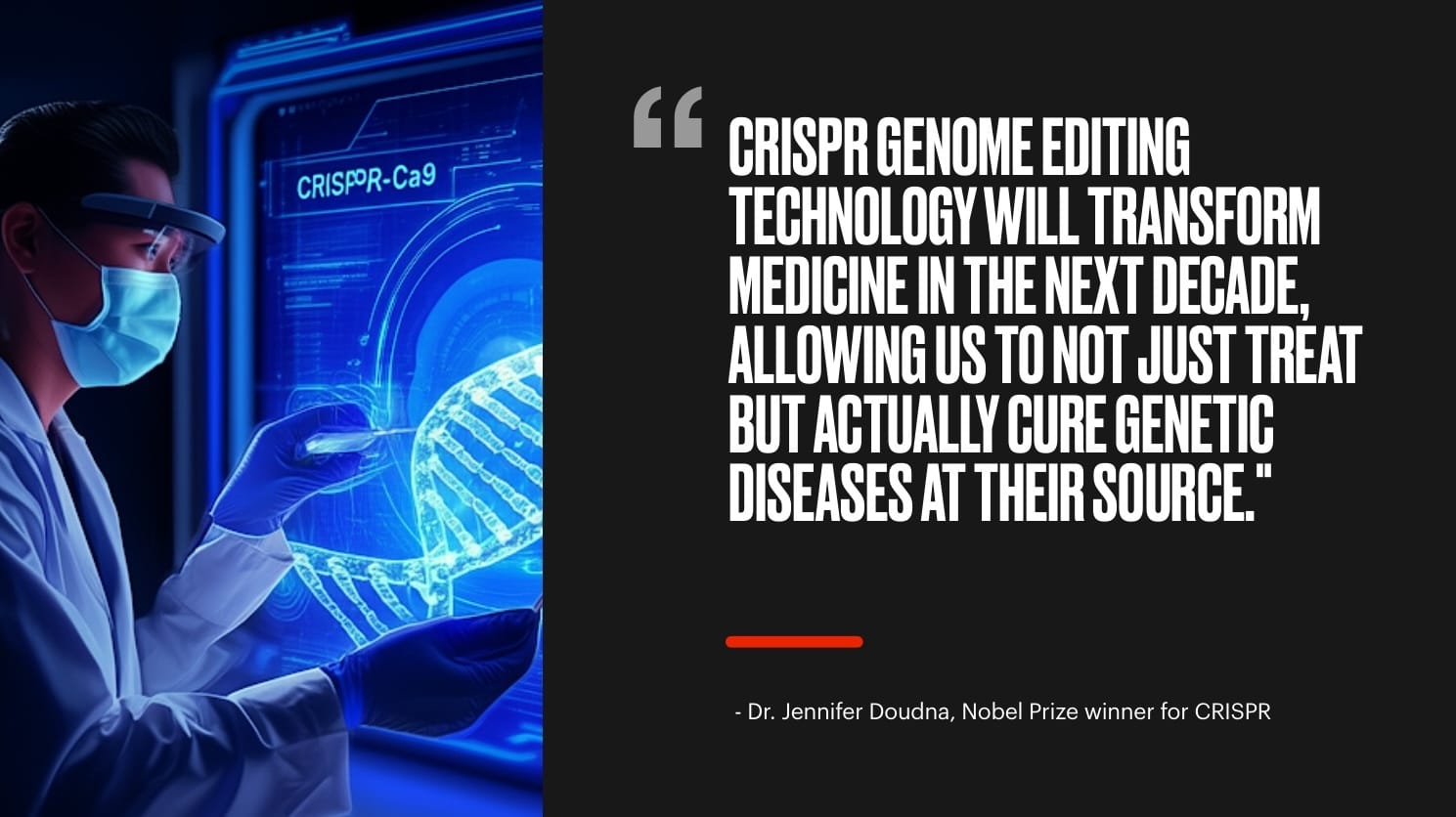
The integration of technology and human biology is poised to take an even more intimate turn. Back to Ray Kurzweil, who predicts that "by the 2030s, we will connect our neocortex to the cloud". This leap will "expand our memory, and cognitive capabilities, and allow us to directly interface with artificial intelligence".
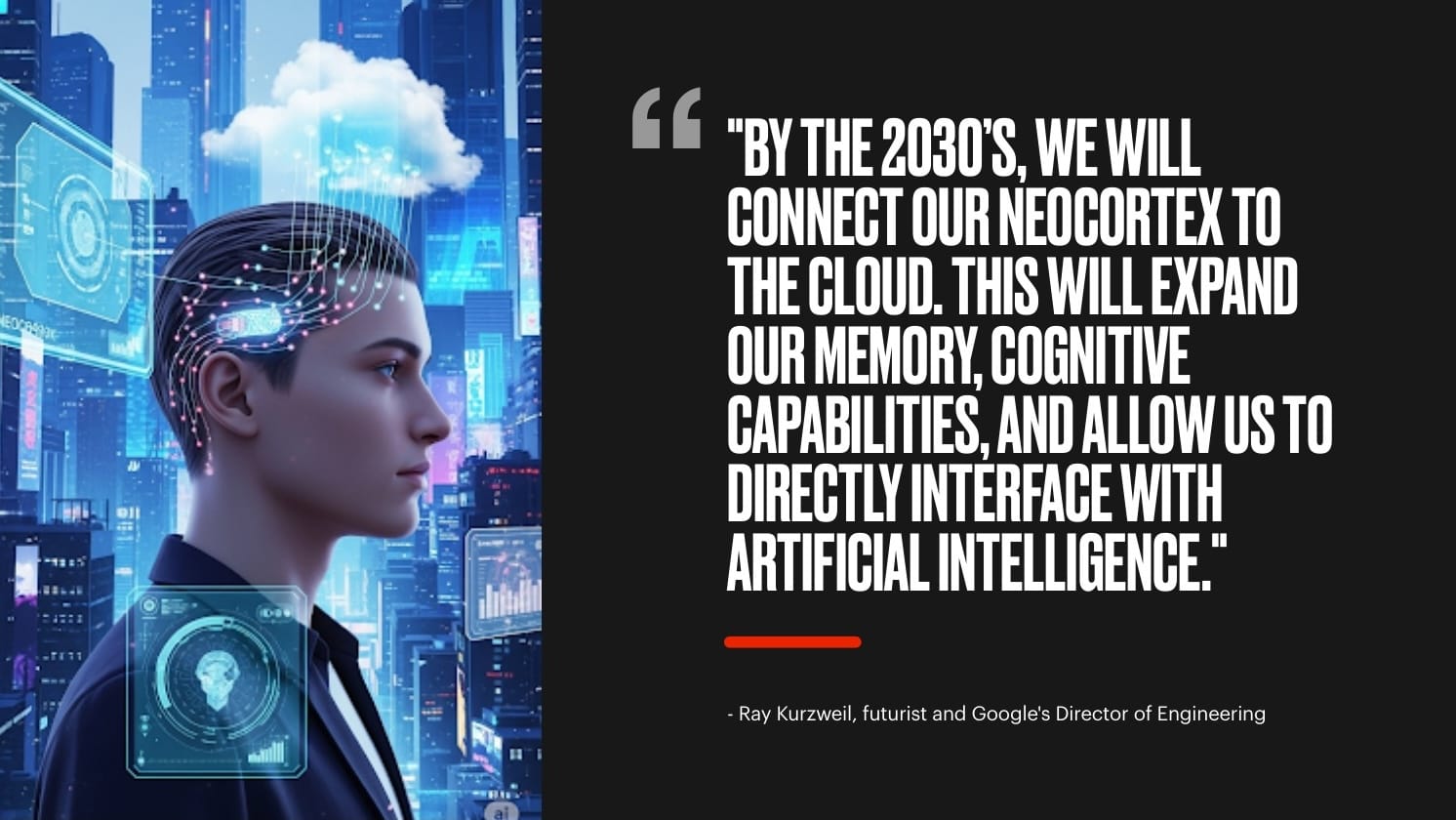
These technological marvels are driving a fundamental shift in our approach to well-being involving proactive, data-driven health: We are set to "transition from reactive medicine to proactive medicine," according to Dr. Leroy Hood, co-founder of the Institute for Systems Biology. He elaborates that "within 10 years, each patient will be surrounded by a virtual cloud of billions of data points that will enable us to optimize wellness and minimize disease".
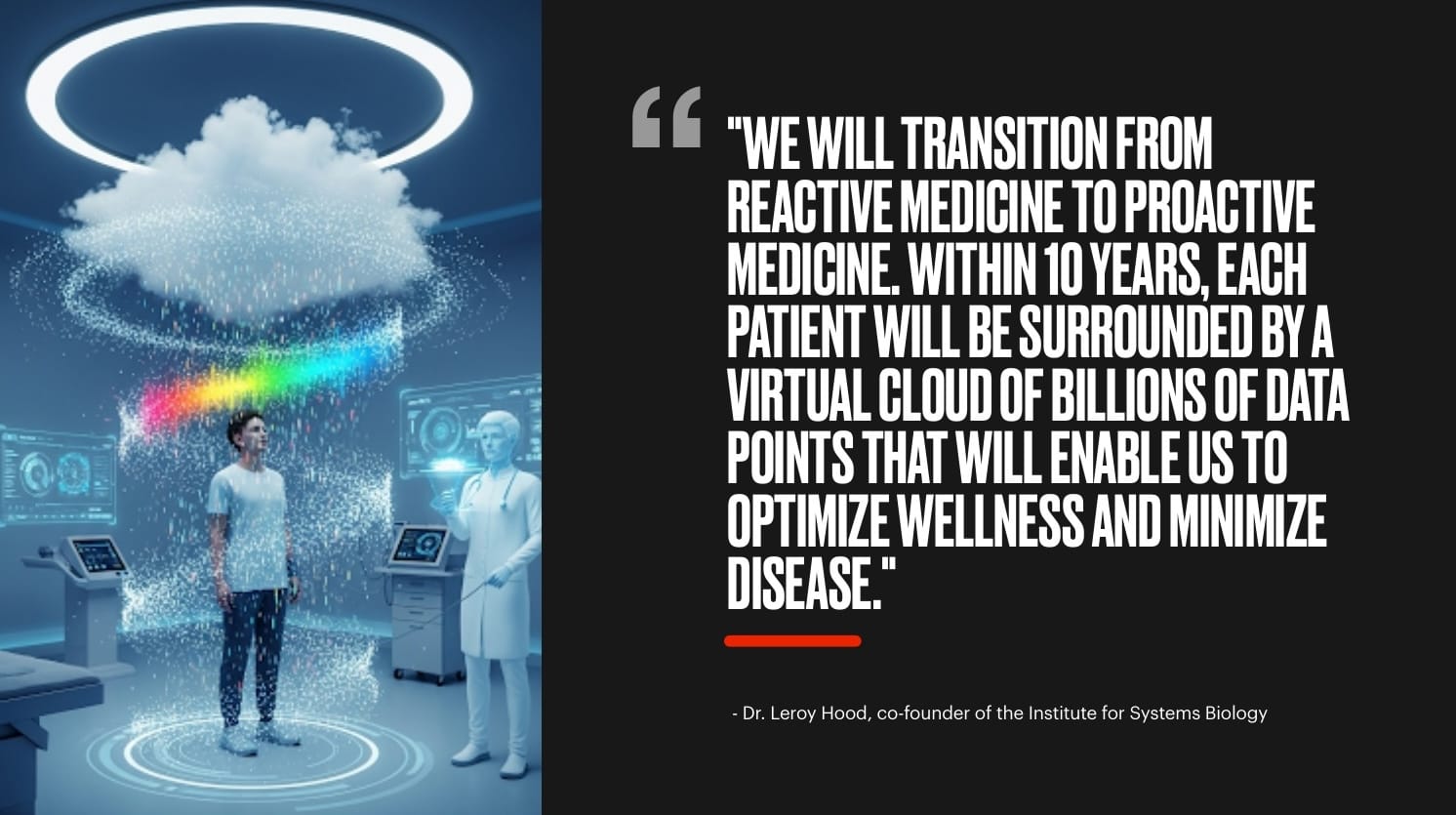
A lot of this involves improvements in precision and efficacy: Dr. Robert Langer, an MIT Professor and biomedical engineering pioneer, believes that "within the next decade, we'll see drug delivery systems that can precisely target diseased cells, dramatically reducing side effects and improving the efficacy of treatments".
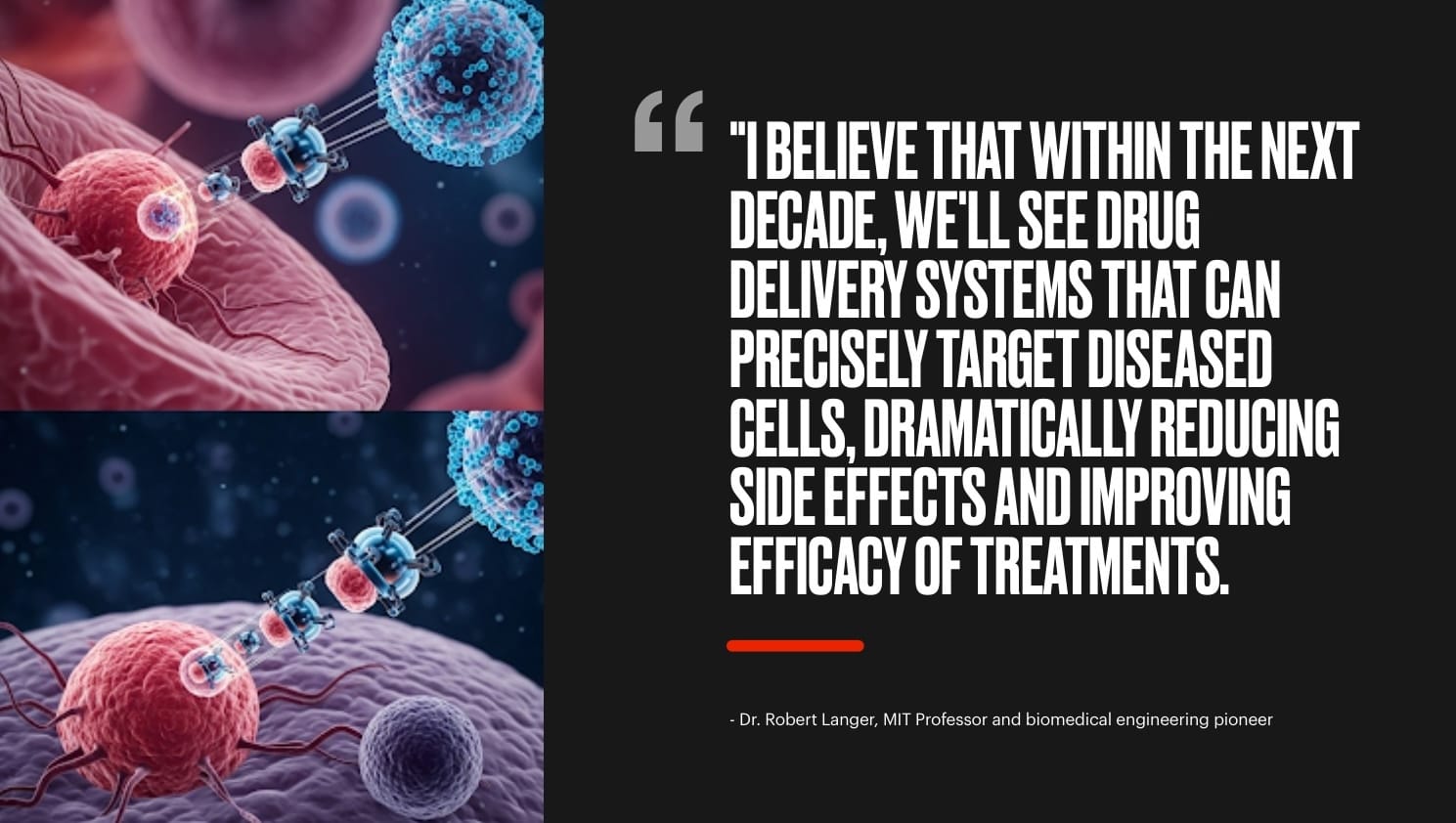
Echoing the move to proactive wellness, Dr. Eric Topol states, "We are moving from a system of 'sick care' to 'health care,' largely driven by ubiquitous sensors and AI that empower individuals to manage their wellness proactively".
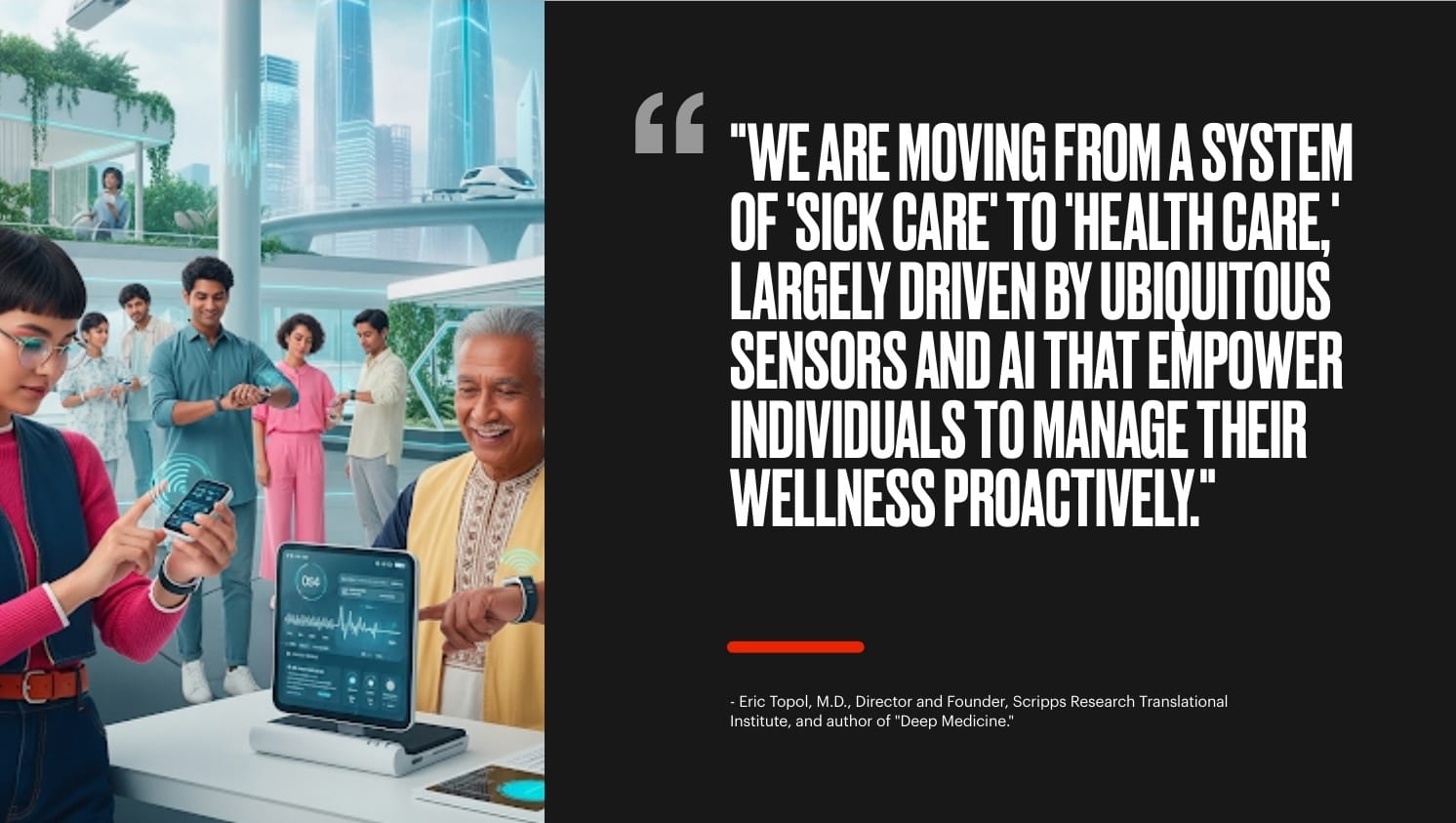
Technology will be at the heart of many of these trends: "Continuous, real-time physiological data from wearables and implantables will become the new vital signs," says Dr. Daniel Kraft, Chair for Medicine & Neuroscience at Singularity University. This will allow "for personalized, predictive interventions long before symptoms appear".
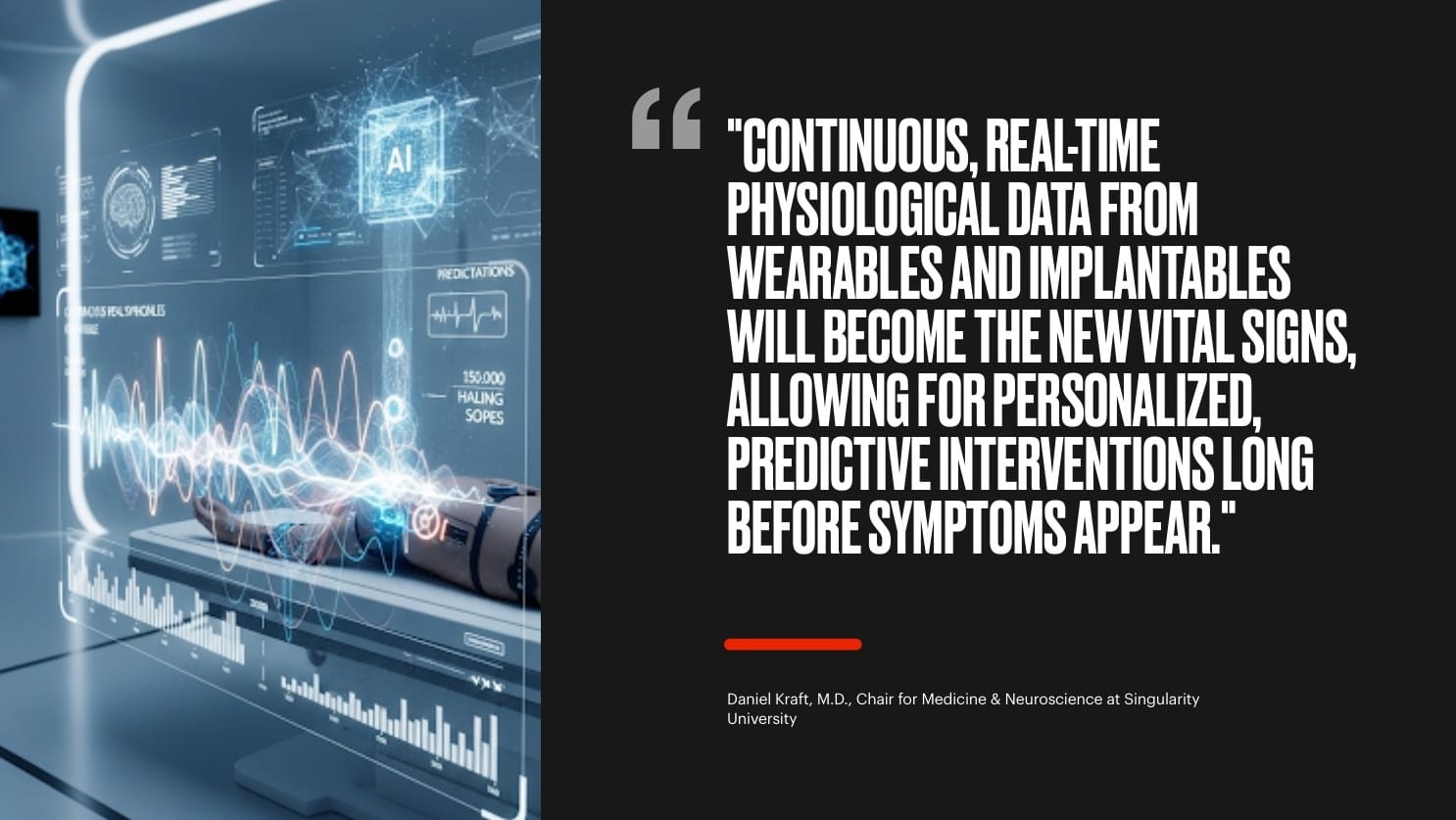
Critically, these advances promise to make healthcare more accessible. Dr. Peter Diamandis, M.D., Founder and Executive Chairman of the XPRIZE Foundation, highlights that "the convergence of miniaturized sensors, advanced analytics, and remote connectivity will make hospital-level care accessible from virtually anywhere, democratizing healthcare delivery globally".
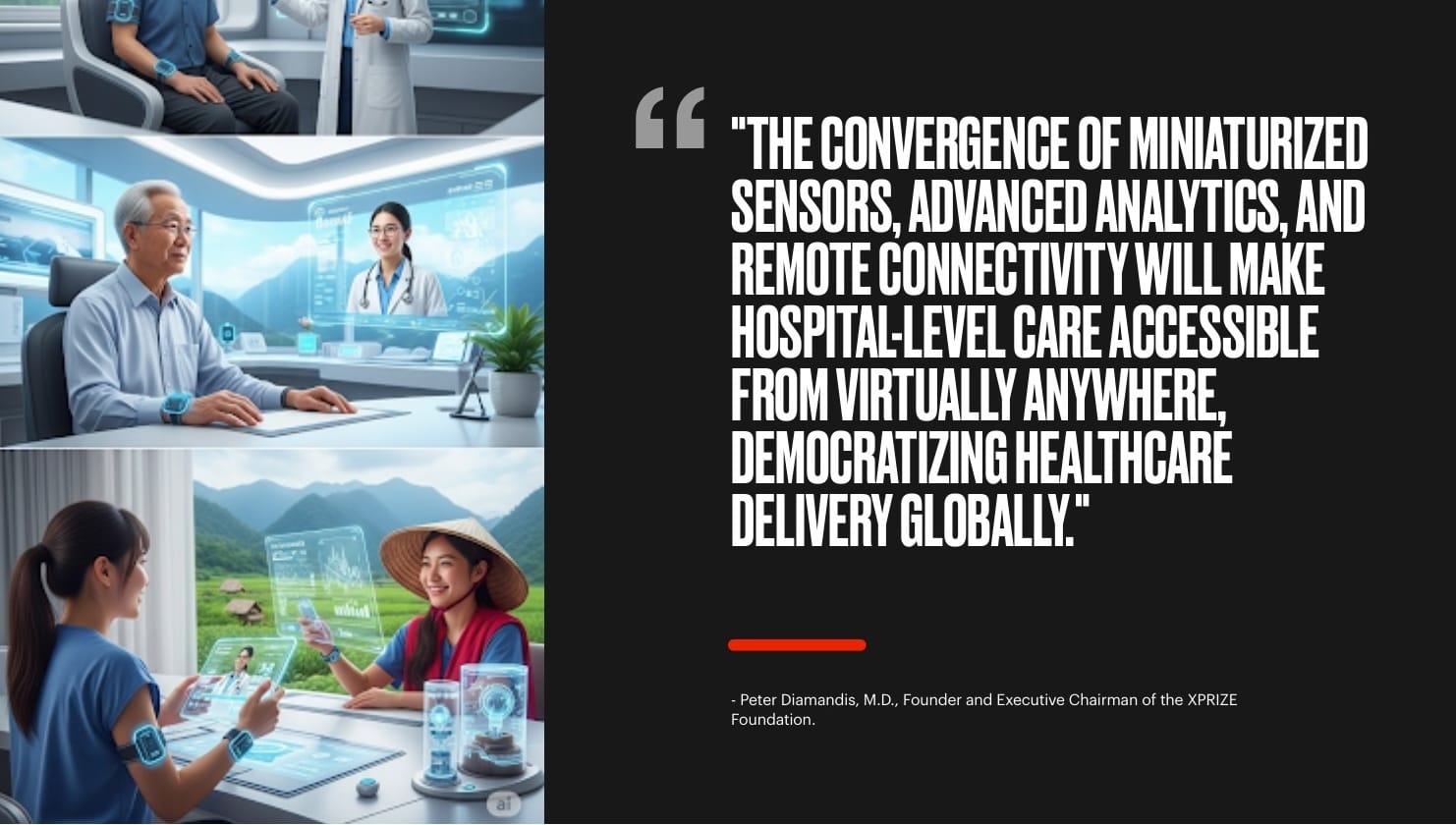
Put it all together, and the convergence of biotechnology, nanotechnology, artificial intelligence, and data science is not just incrementally improving healthcare; it's building an entirely new framework for going forward The coming years will see us move beyond treating symptoms to actively engineering wellness, extending not just our lifespans but our healthspans.
The future of medicine is no longer a distant dream - it's being built, coded, and grown, today. Bold ideas I'll be sharing to stretch minds in this upcoming keynote!
Details on Jim’s keynotes in the healthcare sector can be found at https://healthcare.jimcarroll.com

